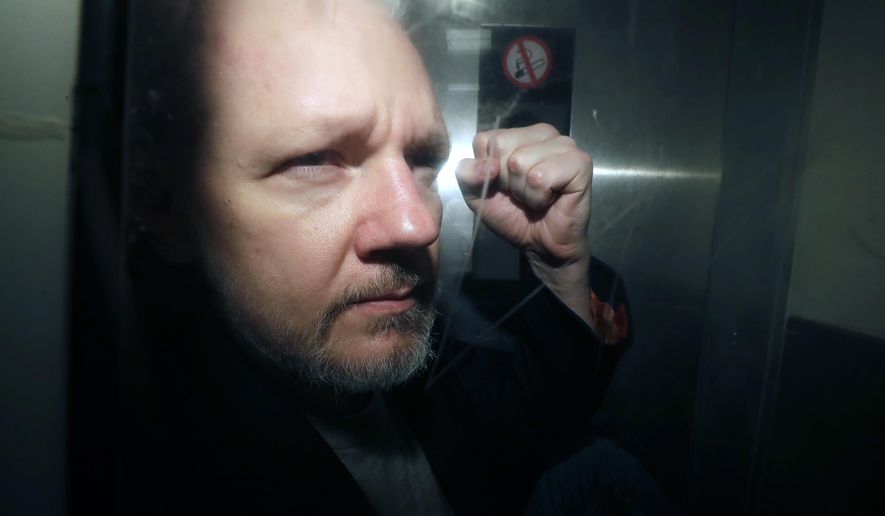LONDON — Britain’s High Court is set to rule Monday on whether WikiLeaks founder Julian Assange can take his fight against U.S. extradition to the U.K. Supreme Court.
The decision is the latest step in Assange’s long battle to avoid being sent to the United States to face espionage charges over WikiLeaks’ publication of classified documents more than a decade ago.
Just over a year ago, a district court judge in London rejected a U.S. extradition request on the grounds that Assange was likely to kill himself if held under harsh U.S. prison conditions.
U.S. authorities later provided assurances that the WikiLeaks founder would not face the severely restrictive conditions that his lawyers said would put his physical and mental health at risk.
Last month the High Court overturned the lower court’s decision. High Court justices Ian Burnett and Timothy Holroyd said the American promises were enough to guarantee Assange would be treated humanely.
They said the U.S. promises were “solemn undertakings, offered by one government to another, which will bind all officials and prosecutors who will deal with the relevant aspects of Mr. Assange’s case now and in the future.”
Assange’s lawyers say those promises can’t be trusted, and have sought permission to appeal to Britain’s highest court. They argue that the U.S. government’s pledge that Assange won’t be subjected to extreme conditions is meaningless because it is conditional and could be changed at the discretion of American authorities.
Nick Vamos, a partner at Peters & Peters solicitors in London and a former head of extradition at Britain’s Crown Prosecution Service, said it was unlikely that the appeal would be granted. Assange can only take the case to the Supreme Court if the High Court rules that there are matters of “general public importance” to consider.
Even if the High Court justices reject that argument, the long-running legal saga is unlikely to end immediately. Assange still has other routes of appeal against the extradition decision open to him.
Assange, 50, has been held at the high-security Belmarsh Prison in London since 2019, when he was arrested for skipping bail during a separate legal battle. Before that, he spent seven years holed up inside Ecuador’s Embassy in London. Assange sought protection in the embassy in 2012 to avoid extradition to Sweden to face allegations of rape and sexual assault.
Sweden dropped the sex crimes investigations in November 2019 because so much time had elapsed.
American prosecutors say Assange unlawfully helped U.S. Army intelligence analyst Chelsea Manning steal classified diplomatic cables and military files that WikiLeaks later published, putting lives at risk.
Lawyers for Assange argue that their client shouldn’t have been charged because he was acting as a journalist and is protected by the First Amendment of the U.S. Constitution that guarantees freedom of the press. They say the documents he published exposed U.S. military wrongdoing in Iraq and Afghanistan.




Please read our comment policy before commenting.